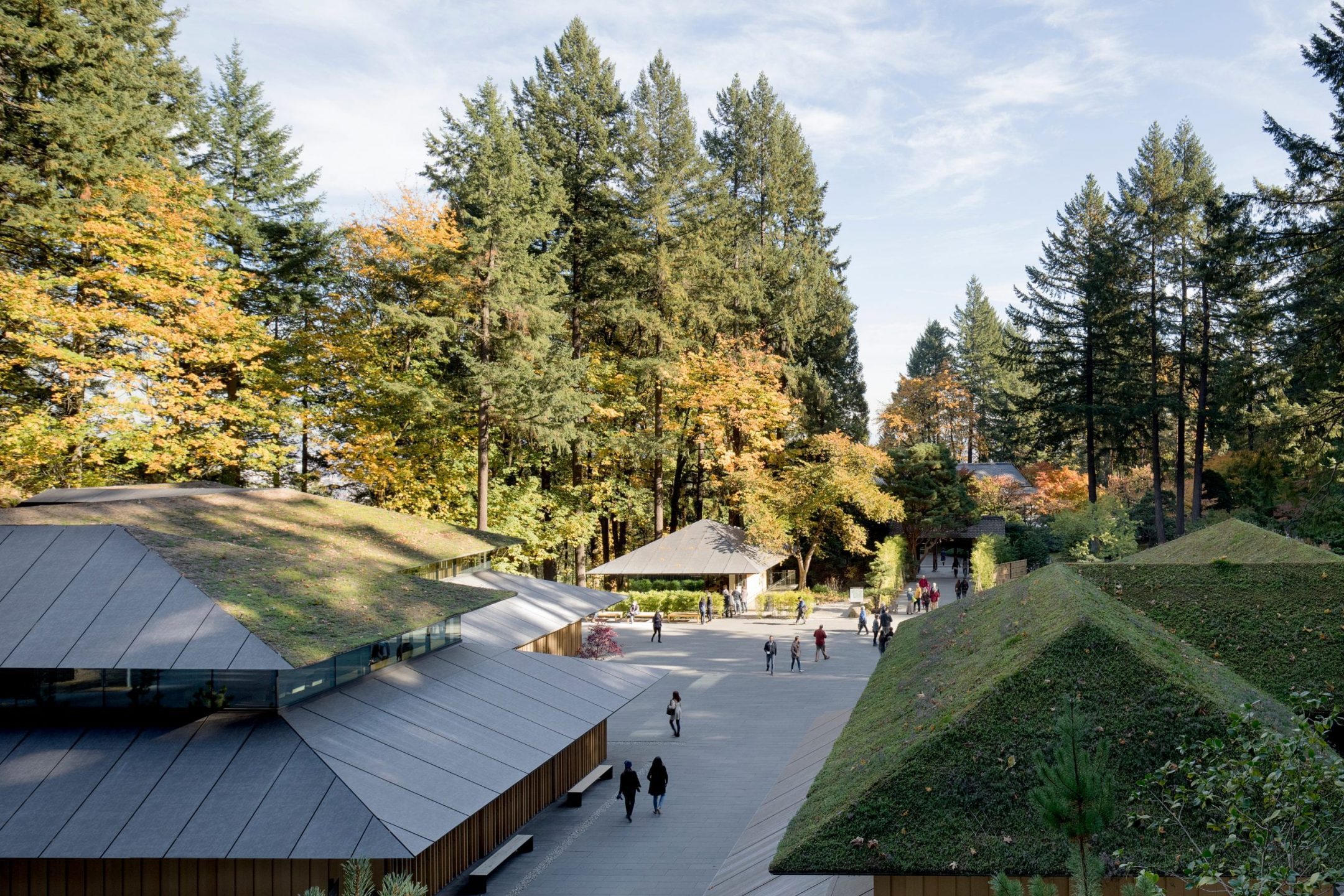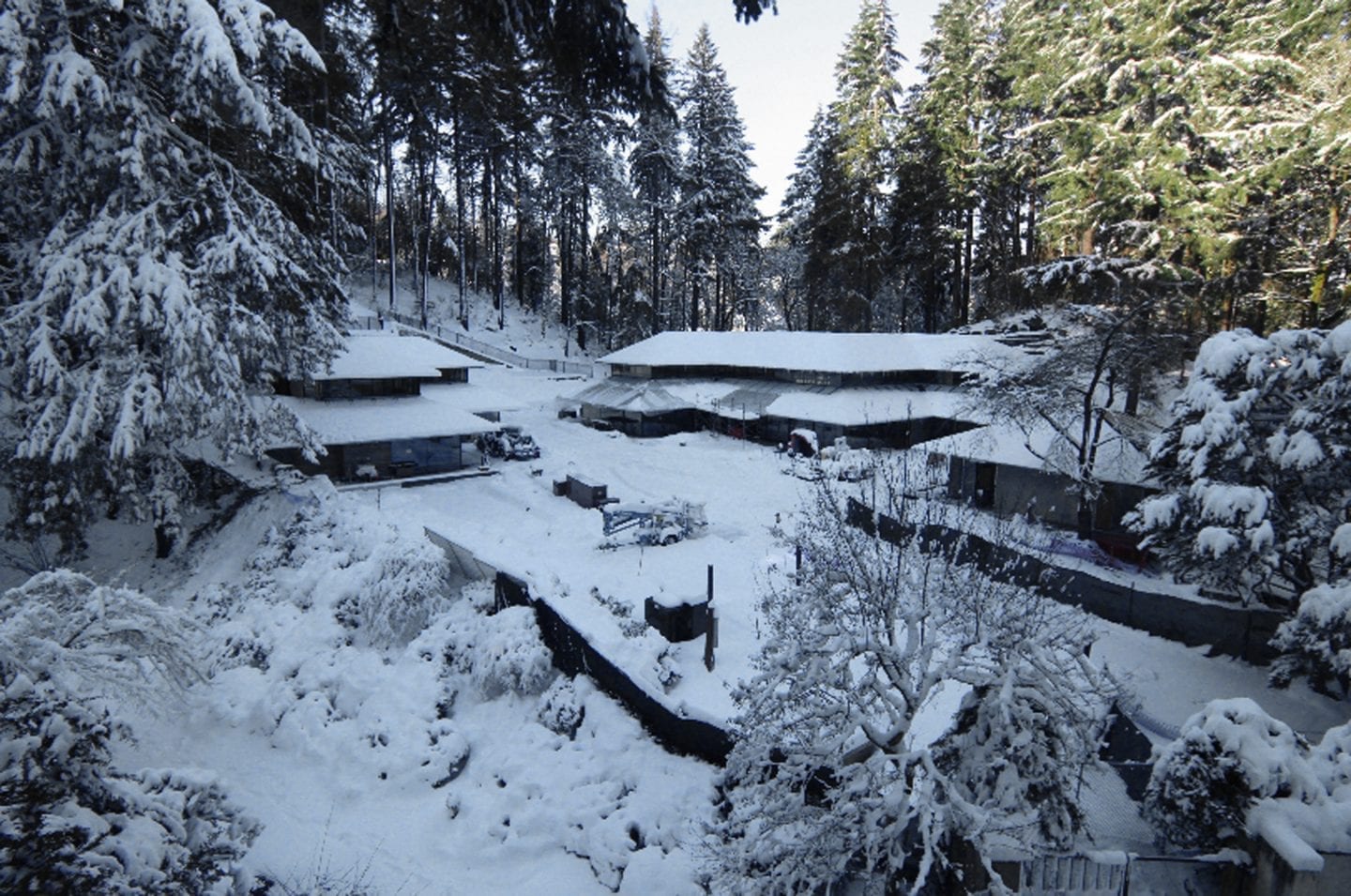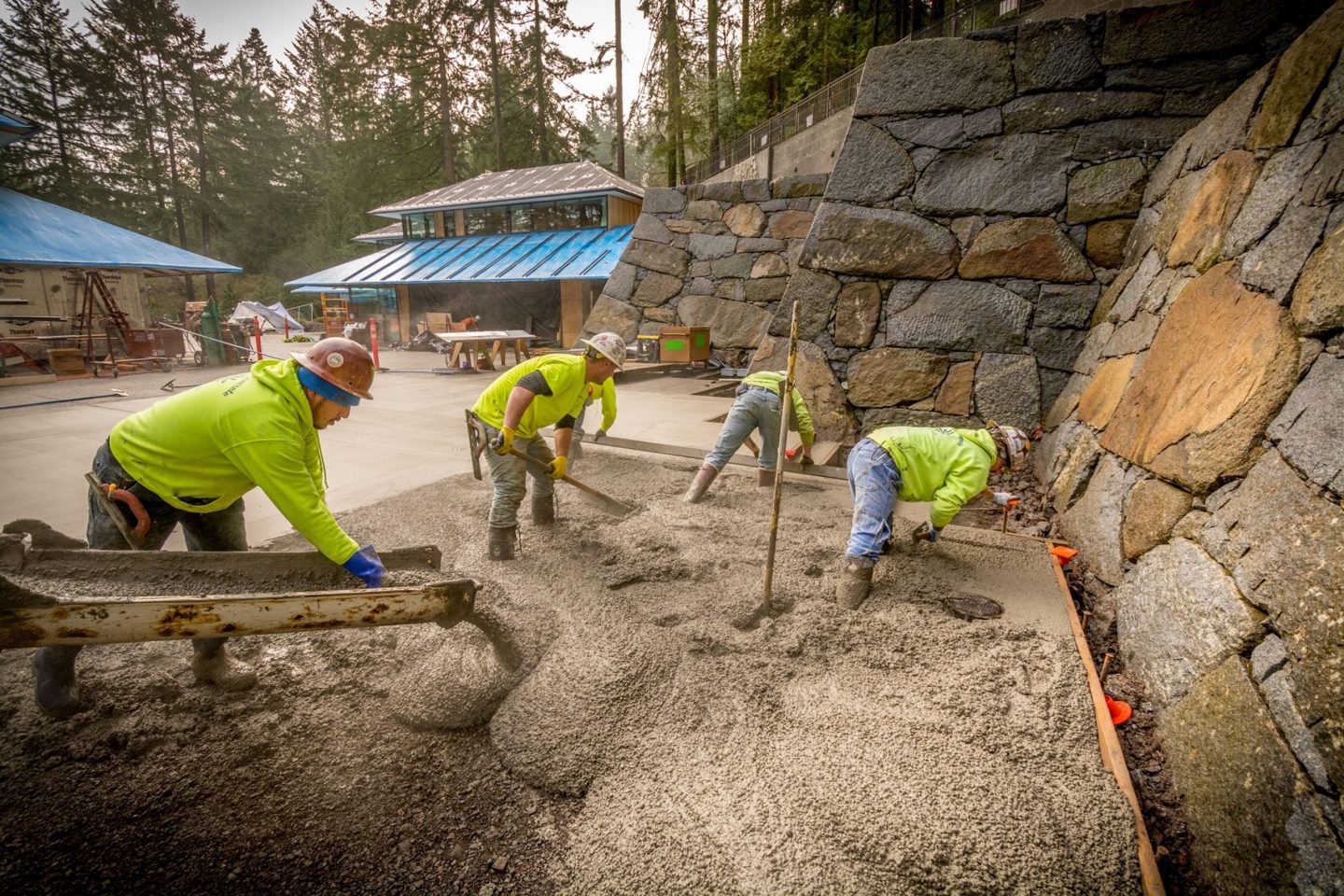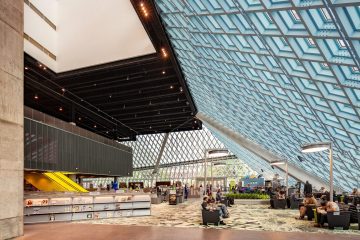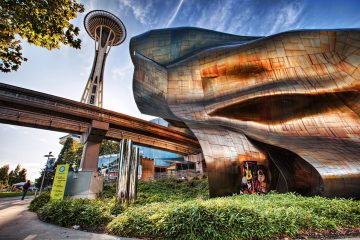A Cross‑Cultural Commitment to Excellence
Portland Japanese Garden Cultural Village
Since it opened in 1967, the Portland Japanese Garden has provided residents and visitors alike with an oasis of serenity and a connection to Japanese ideals and values. Located adjacent to Washington Park in Portland’s west hills, the Garden is considered the finest of its kind outside Japan. In 2015, the Garden partnered with world-renowned Japanese architect Kengo Kuma to expand the facility to accommodate rapid visitor growth, as well as enhance its ability to immerse visitors in Japanese arts and culture. It was the first significant renovation in over fifty years. As part of a highly collaborative team that included local design firm Hacker, Hoffman doubled the size of the Garden and added a series of buildings that support its cultural mission.
Challenge
How do you craft an approach that honors the aesthetics and traditions of Japanese design, construction techniques, and culture?
Solution
From woodwork details and landscaping to owner furnishings, preserving the elements of a traditional Japanese garden and incorporating authentic materials and methods drove every aspect of Hoffman’s project delivery.
-
2020 Top Honors Award of Excellence — ASLA
2019 Excellence in Concrete — OCAPA
2019 Excellence in Concrete Craftsmanship — OCAPA
2019 Outstanding Project Of The Year — NWCB
2019 Best-Designed Building: Oregon — Architectural Digest
2018 Honor Award — AIA NW & Pacific Region
2017 Project Of The Year — ENR
2017 Project of the Year for Cultural/Worship Projects — ENR
-
The Best-Designed Building in Every U.S. State
Architectural Digest — May 22, 2019
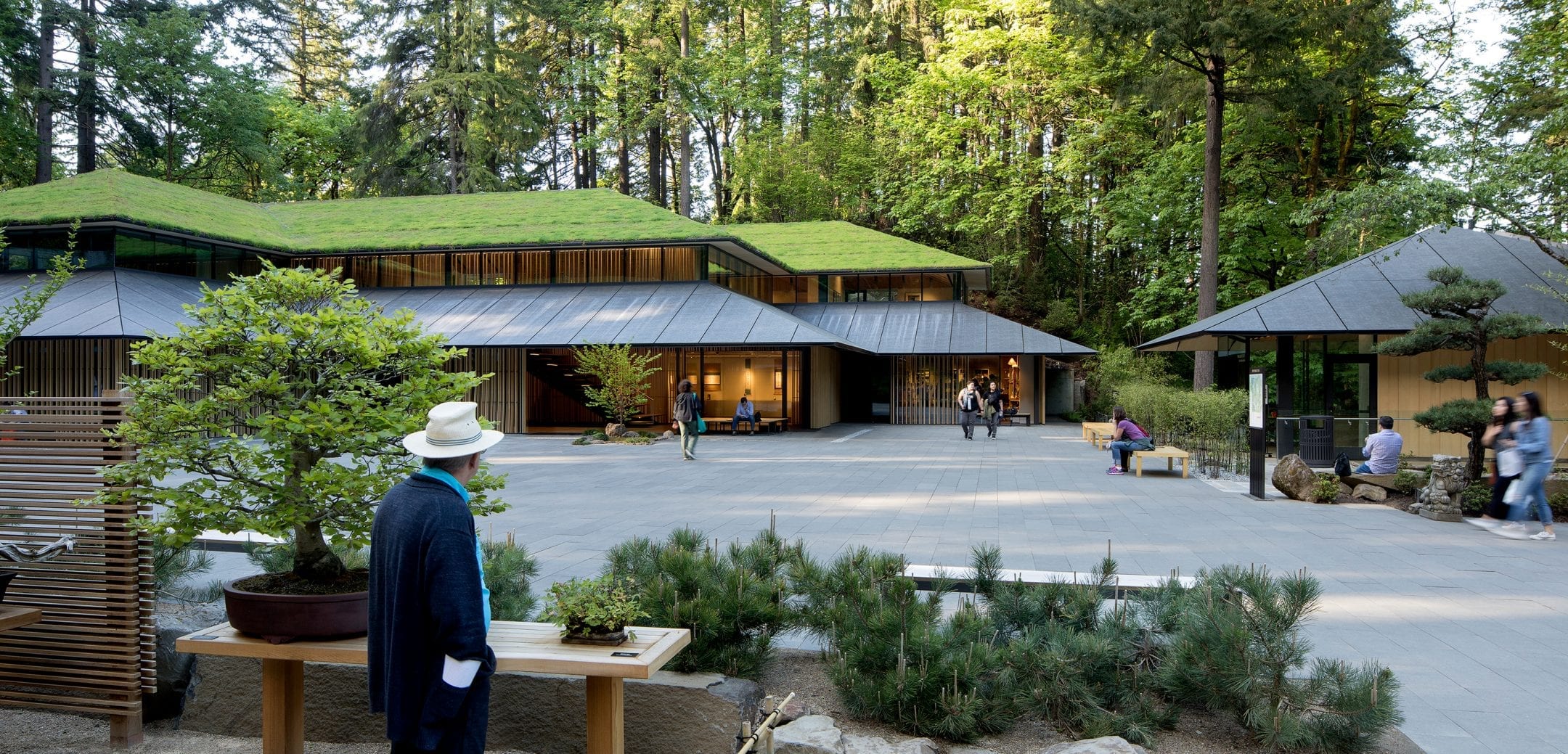
Craftsmanship and Attention to Detail
The project was Kengo Kuma’s first U.S. commission. Craftsmanship on the project reflected the Japanese tradition of attention to detail and pursuit of aesthetic beauty. Once the castle wall stones were transported and staged on a lot in Portland, the team began a meticulous process of hand-cutting and shaping the stone into the required shapes and sizes.
Using techniques passed down from the 17th century, a group of experienced masons worked under the direction of master stone mason Suminori Awata. Although the Garden did hire a translator to assist in this effort, the bulk of the work was accomplished through hand gestures, and the common “language” of stone shared by the key participants.
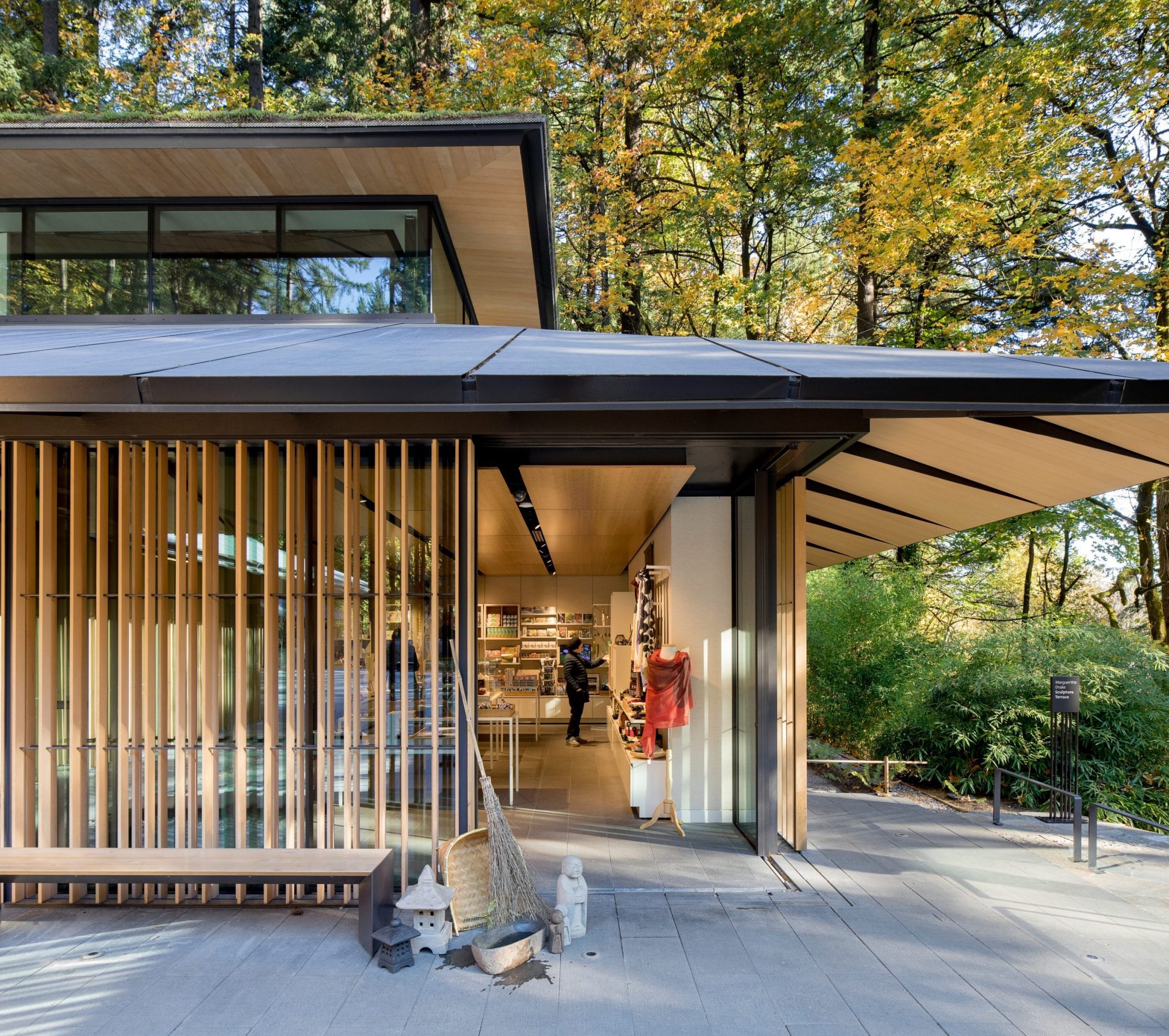
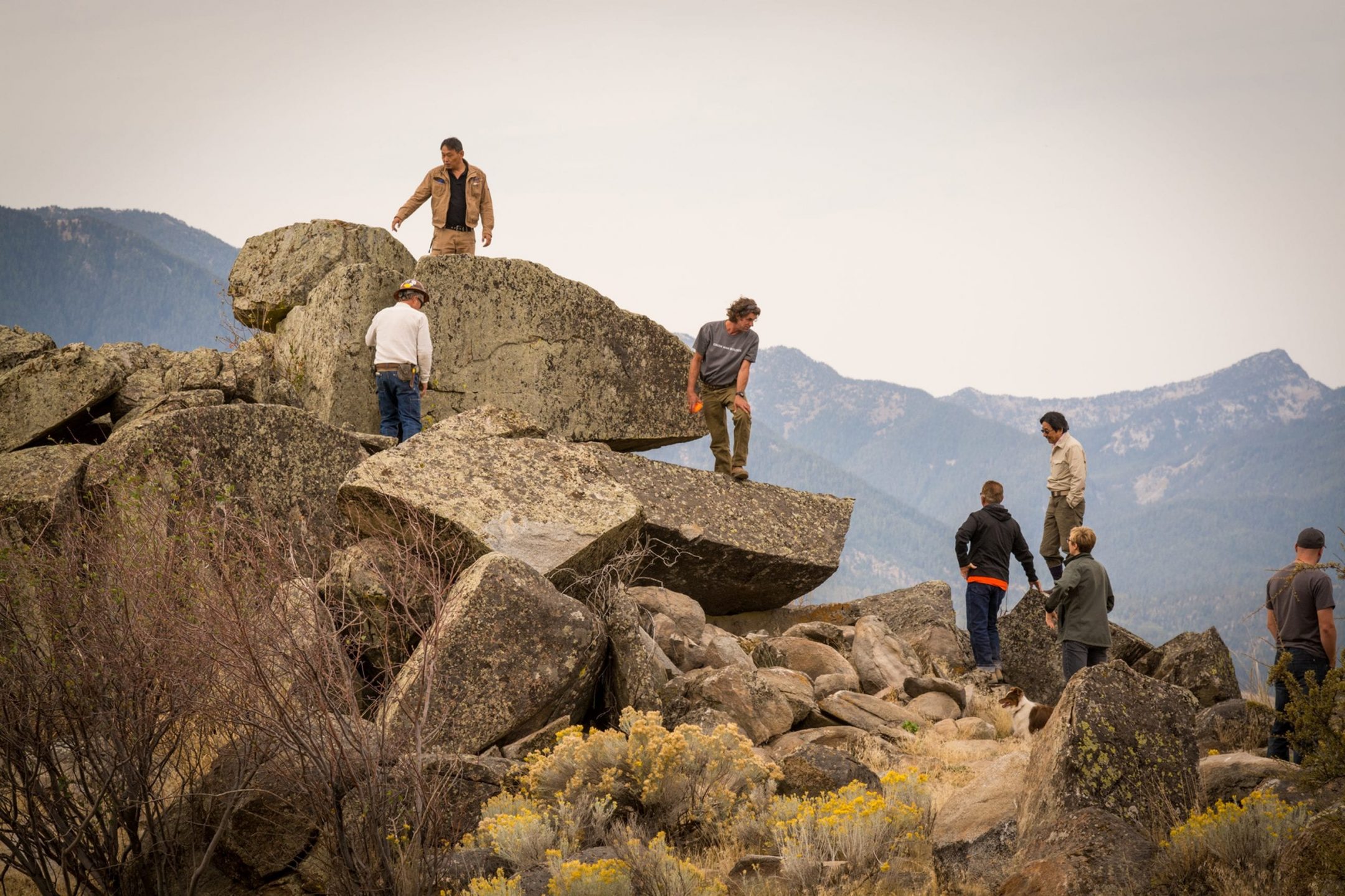
The Quest for Authenticity
The Garden’s procurement process ventured far outside a typical construction project. For example the massive stones used to construct the 20-foot Japanese castle wall: the rock had to have a specific, weathered look. It wasn’t something that could be ordered from a vendor.
After a lengthy search, the Garden’s Curator, Sadafumi Uchiyama, found the answer in an abandoned quarry in Baker City, Oregon, three hundred miles east of Portland. Large boulders were scattered throughout the site, all covered in moss and scarred from years of exposure. Mr. Uchiyama, along with 15th generation Japanese master stone mason Suminori Awata, hand-selected 800 tons of rock, which was hauled to Portland in 34 flatbed trucks.
